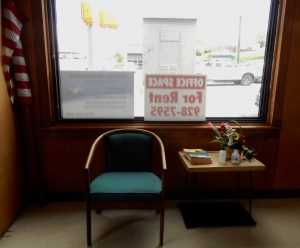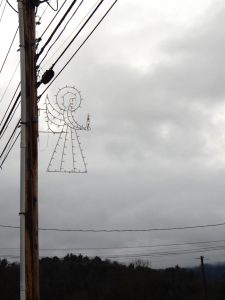
I spent much of 2015 in waiting rooms and the remainder of the year, waiting.
Waiting rooms are often brutal places. I often wondered why doctor’s offices even bother to have a TV anymore; most everyone is looking at their phones. A departure lounge set up, with personal power outlets and an atmosphere that encouraged headphone usage, would be closer to how most people use those spaces. Both departure lounges at the airport and waiting rooms have TVs, of course, but the TV in the waiting room demands your attention because of the atmosphere of the hospital. At least, it draws your attention out into the room, rather than letting you filter into the restful bubble of your cell phone.
Waiting rooms are often spaces of confinement: as my mother put it, you are often held hostage to other people’s conversations. Much of the time we spent in waiting rooms last year was dominated by political conversations; the meaning of displaying the Confederate flag, the danger of outlawing guns, and so on.
The day after the 2016 Presidental Election results were in, I reflected on those conversations overheard in waiting rooms. Why, after all of the listening I did in waiting rooms across Tennessee, did I not see it coming? The politics of white nationalism, in particular, were discussed in public in those waiting rooms; why did I misinterpret that as just the same racist talk I heard so often growing up instead of the radical politics that it is? I had a happy delusion that racism as a political force was on the ebb.
Setting aside that line of inquiry and acknowledging that no one has a crystal ball, I think there was something to my impulse to think back to those overheard conversations in waiting rooms as politically important. On the one hand, there is a politics that people bring into the waiting rooms (I remember wanting to intervene in the conversation about gun politics and point out how the statistics these people were quoting had been twisted around), but there could also be a politics generated within waiting rooms.
Airports are so overtheorized as sites of mobility, as non-places, as sites of the cosmopolitan, yet apolitical in a way: mobility is what stands in the way of politics. In a way, the hospital is the inverse of an airport; spaces of mobility in a closed system – mobility within a confining system, rather than portals out into a globalized world system. Hospitals are just as cosmopolitan, if not more so: people from different social strata are pulled into the same space and made to wait together for slots of time with a doctor. They could be spaces of solidarity – patients waiting in a hematology/oncology waiting room are likely to have similar diseases in common.
What if the people waiting together organized democratically? What if the caregivers passing through waiting rooms networked with each other to support each other? What makes waiting rooms political yet prevents politics is the way that time is sliced up there: there is just enough time to strike up a conversation on whatever issue of the day has arisen but not enough to achieve much solidarity with others.

Recent Comments